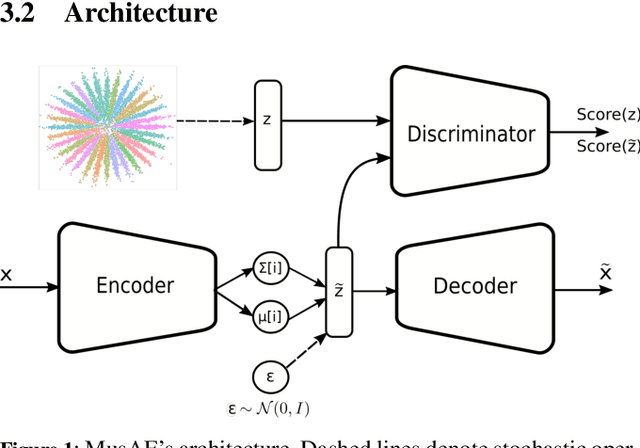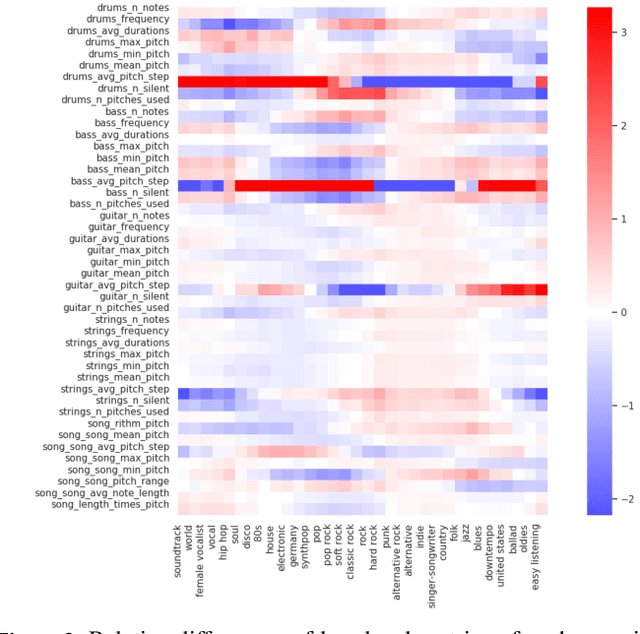Learning Style-Aware Symbolic Music Representations by Adversarial Autoencoders
Paper and Code
Feb 20, 2020



We address the challenging open problem of learning an effective latent space for symbolic music data in generative music modeling. We focus on leveraging adversarial regularization as a flexible and natural mean to imbue variational autoencoders with context information concerning music genre and style. Through the paper, we show how Gaussian mixtures taking into account music metadata information can be used as an effective prior for the autoencoder latent space, introducing the first Music Adversarial Autoencoder (MusAE). The empirical analysis on a large scale benchmark shows that our model has a higher reconstruction accuracy than state-of-the-art models based on standard variational autoencoders. It is also able to create realistic interpolations between two musical sequences, smoothly changing the dynamics of the different tracks. Experiments show that the model can organise its latent space accordingly to low-level properties of the musical pieces, as well as to embed into the latent variables the high-level genre information injected from the prior distribution to increase its overall performance. This allows us to perform changes to the generated pieces in a principled way.
 Add to Chrome
Add to Chrome Add to Firefox
Add to Firefox Add to Edge
Add to Edge